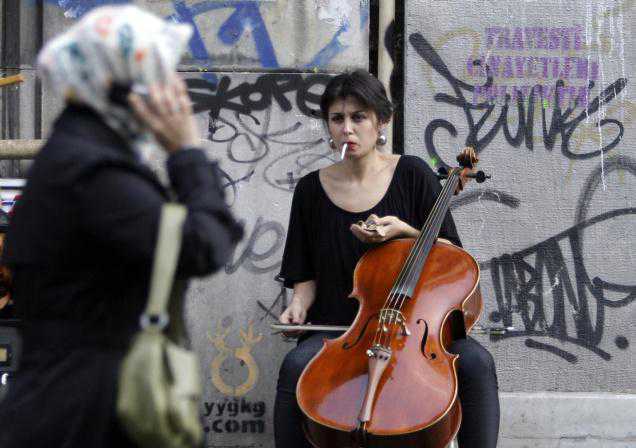A recent article in Variety gave some information about the TV and film industry in Turkey and about social media usage. Here’s the article. Here’s the info briefly (with my comments):
Local movies took 47% of market share last year, despite only 70 local movies produced. (Fetih 1453 — see my review here — made $31 million.) Average movie ticket price is five bucks. But movie attendance is low (0.6 visits per person per year; 2.7 in the UK)
Local movies took 47% of market share last year, despite only 70 local movies produced. (Fetih 1453 — see my review here — made $31 million.) Average movie ticket price is five bucks. But movie attendance is low (0.6 visits per person per year; 2.7 in the UK).
Imax has two theaters in Turkey and plans to open three more. (This is particularly galling, given the razing of classic movie theaters like the Emek Cinema that date to the beginning of Turkey’s own movie industry, now sacrificed to the relentless construction of malls — into which Imax would fit perfectly, if completely without character.) The entire country at present has 2000 screens. I find it hard to imagine, despite Imax’s optimism, that the present government would like more opportunities for promiscuous mingling of the sexes in the dark.
With 18 million TV homes, Turkey is one of Europe’s major markets. Half of the viewers use satellite TV or cable. More than 3 million subscribe to pay-TV. There are two dozen private national and hundreds of regional and local channels. “Who Wants to be a Millionaire” and “Pop Idol” are big, but the most popular show is Star channel’s historical soap, “Magnificent Century” (Muhteşem Yüzyıl), to which I have admittedbeing addicted.
42.5% of the population [of 80 million, 70% living in cities] is aged 25-54; 26.2% are under 14. There are lots of cool, stylish kids with the latest smartphones. The country has among the world’s highest social media use through mobile Internet. An estimated 30 million Turks use Facebook. Turkey ranks eighth among nations in terms of Twitter penetration. Some 71% of Turkish Internet users go online every day for entertainment purposes. According to the BKM (Interbank Card Center) data, the Turkish e-commerce market reached a whopping $25 billion in 2012.
Given that most people didn’t have home telephones in the 1980s, this is a remarkable transformation. (I still remember the first phone booths in Ankara appearing in the mid-1970s; their cords were immediately cut by vandals. Anyway, who could you call?)
I’ve always believed that the introduction of the cellphone at the end of the 1980s and its immediate spread was a major factor in Islamist political organizing, making it possible to set up phone trees and mobilize large numbers of people through their personal networks. I remember the frustration of trying to do research in Istanbul in the 1980s by making appointments from a phone booth, the long lines, men swinging their worry beads at the glass if you were taking too long, and the frutsration of finding no one home of the few people who even had telephones that one could call. The unwritten phone booth etiquette rule was that you could dial one call (even if no one answered) and then you went to the back of the line again. Imagine doing business or political organizing like that.
Istanbul is so big that sometimes I’d spend hours to travel to visit someone (not having been able to tell them I was coming) only to find them not at home. No wonder people took to cell phones like a third ear. The Turkish custom of hosting a visitor at your door, regardless of how inconvenient, is likely related to this inability to plan ahead. Now people don’t have to visit (and getting through traffic is even worse), so why not tweet and twitter instead, like birds comfortably perched on a power line high above the gridlocked city.
http://kamilpasha.com/?p=6840


Leave a Reply